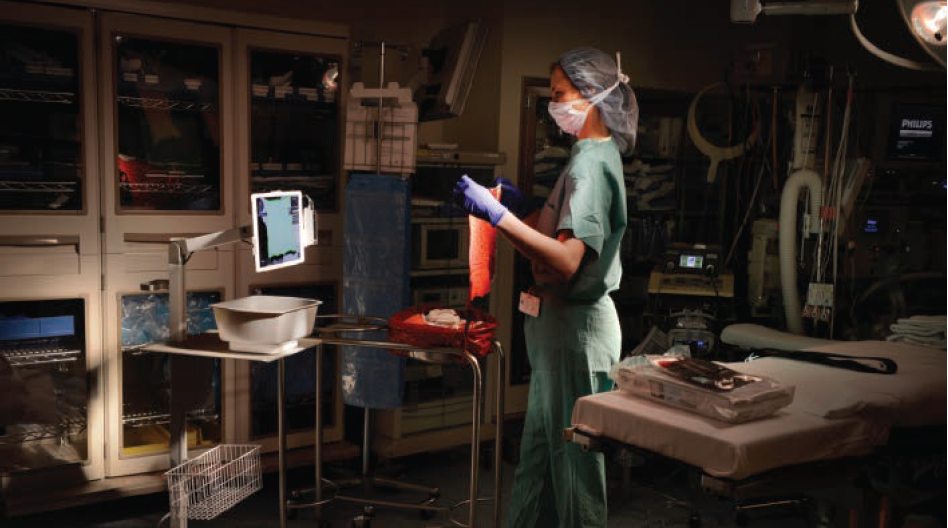Surgeons are the biggest factor in any effort to streamline and standardize the purchase of new surgical devices—and thereby lower costs. But surgeons often balk at getting involved in product review and selection because of the additional demands on their time. Two leading healthcare organizations have moved past this stumbling…
The opioid epidemic has risen to alarming proportions in the United States, claiming 46,000 lives in 2018. Studies and federal reports documenting evidence of narcotics overuse and addiction in patients have built momentum to curb prescribing habits. Responding to these trends, a Midwestern orthopedic practice launched a multiphase project to…
As part of a special series on artificial intelligence (AI), OR Manager is taking a deep dive into the many facets of this new technology and its impact on patient care. Part 1 and Part 2 of the introduction to AI (May 2019 and June 2019) defined types of AI…
“What we have right now, quite frankly, in healthcare are islands—visible islands of excellence in a sea of invisible failures, with risk lurking just below the waterline. We need to widen those islands of excellence. We need to connect these islands with more dry land. We need to address these…
The Leapfrog Group’s spring 2019 Hospital Safety Grade Report shows some progress in patient safety: an estimated 160,000 avoidable deaths nationwide, down from 205,000 in 2016. But 160,000 is a large number. “There’s still a lot of needless death and harm in American hospitals,” says Leah Binder, Leapfrog’s president and…
Psychologists and social scientists developed the concept of emotional intelligence decades ago, and research since then has supported it as a key component of leadership success. “Thirty plus years’ worth of research shows that having leadership skills is not enough to be an effective leader,” says Kandi Wiens, EdD, MBA.…

Blood loss during labor and delivery (L&D) and surgical procedures can lead to serious complications that might be prevented with early detection; however, detection can be challenging. For example, clinicians have traditionally estimated blood loss visually—a subjective and often inaccurate process. Humans’ eyes simply aren’t good at making precise measurements,…
OR leaders spend much of their day ensuring the surgery schedule runs smoothly, a task that depends on the teams within each of the ORs. Highly functioning teams produce optimal results, including good patient outcomes, satisfied surgeons, and efficient use of resources. But developing a highly functional team with good…